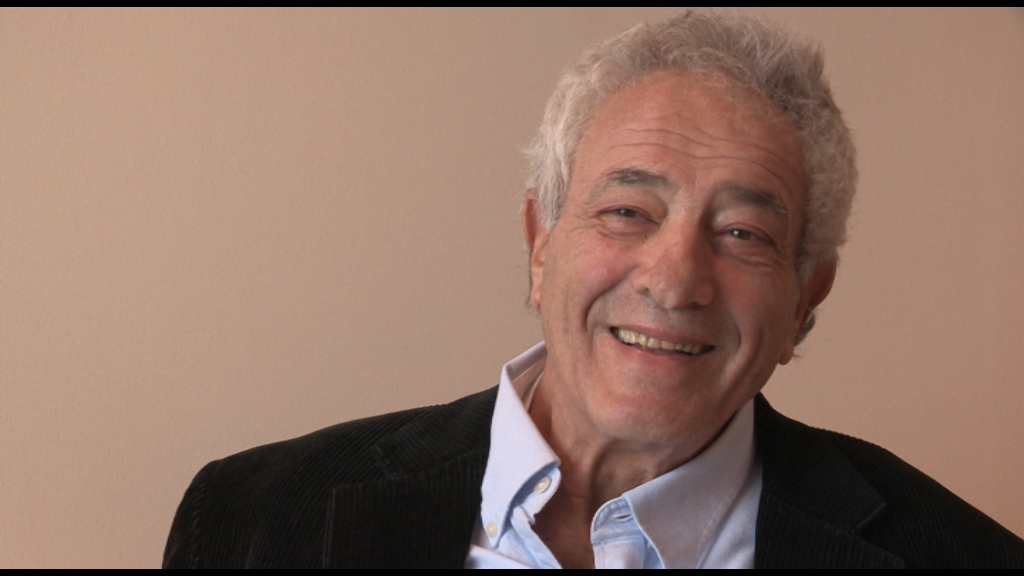NEXT STORY

A student by day, a cab driver by night
RELATED STORIES

NEXT STORY

A student by day, a cab driver by night
RELATED STORIES


|
Views | Duration | |
|---|---|---|---|
| 81. Quality cannot pay for itself | 15 | 03:53 | |
| 82. A student by day, a cab driver by night | 16 | 01:56 | |
| 83. The last ride | 41 | 06:01 | |
| 84. The dinner with Allen Ginsberg I wish I'd never had | 44 | 03:07 | |
| 85. CEO of Penguin Books: the early days | 29 | 04:02 | |
| 86. Why I published The War Between the Generals by David... | 25 | 04:17 | |
| 87. Analysis of the fallout of publishing The Satanic... | 19 | 06:52 | |
| 88. The Satanic Verses | 26 | 02:47 | |
| 89. Underestimating the reaction to The Satanic Verses | 23 | 03:51 | |
| 90. Rousing the ire of the ayatollah | 18 | 04:32 |


I made a lot of enemies, and even inside the company because there were a lot of people at Penguin who loved the institutional nature of Penguin. They didn't understand that, so did I, but that unless I could produce some sales somewhere within this company, nothing could make the institution survive by itself. The company was not doing well.
So [many on the staff] didn't seem to care whether the company was doing well or not. They said, they wanted to tell their mums and dads, 'I'm in publishing, and I work for Penguin!' Ah, that's all right. That's a good thing.
So, the power of Penguin was very, very great as a proper approach to, I guess, publishing, and to media. But there was another question, and that was - it was not publicly-owned, I mean, it was not owned by the government. It was a privately… it was a privately-owned company, and privately-owned companies, if they don't do well for enough years, will finally get sold or liquidated. Well, we weren't going to get liquidated; we were too famous. It would have been sold to somebody, who probably would have done some version of the same thing.
I actually believed in the institutional nature of Penguin. I believed in its quality, but I said, something has to pay for that quality. The quality cannot pay for itself, any more than the opera can pay for itself. Many high-minded things have to be subsidised either by the public, meaning the government, or by private institutions and private individuals, or you will only have popular music. If you want something that is of a minority taste - by minority, I don't mean ethnic minority, I mean something that a small group of people, small, want - something has to make it pay. You either get handouts from the government, or you get handouts from private people and private companies.
Pearson always had a budget for subsidising various museum shows at either the V&A or British Museum or wherever it might be… National Portrait Gallery. And that was a virtuous thing that Pearson did and, but it speaks to the fact, if you go to opera in the US - I can't remember if it's true of every seat at Covent Garden or not - it says on the back of every chair: this chair was donated by the Samuel Johnson Foundation or by Samuel Johnson. Somebody's got to pay for the chairs. I mean…
Well, somebody had to pay for Penguin's excellence also. The excellence was not sufficiently broad to pay for the company. It had paid for the company in earlier years, before there were mass market competitors. As soon as there were mass market competitors, in particular Pan, the public increasingly deserted Penguin and went to more popular imprints.
Peter Mayer (1936-2018) was an American independent publisher who was president of The Overlook Press/Peter Mayer Publishers, Inc, a New York-based publishing company he founded with his father in 1971. At the time of Overlook's founding, Mayer was head of Avon Books, a large New York-based paperback publisher. There, he successfully launched the trade paperback as a viable alternative to mass market and hardcover formats. From 1978 to 1996 he was CEO of Penguin Books, where he introduced a flexible style in editorial, marketing, and production. More recently, Mayer had financially revived both Ardis, a publisher of Russian literature in English, and Duckworth, an independent publishing house in the UK.
Title: Quality cannot pay for itself
Listeners: Christopher Sykes
Christopher Sykes is an independent documentary producer who has made a number of films about science and scientists for BBC TV, Channel Four, and PBS.
Tags: Penguin Books
Duration: 3 minutes, 53 seconds
Date story recorded: September 2014-January 2015
Date story went live: 12 November 2015